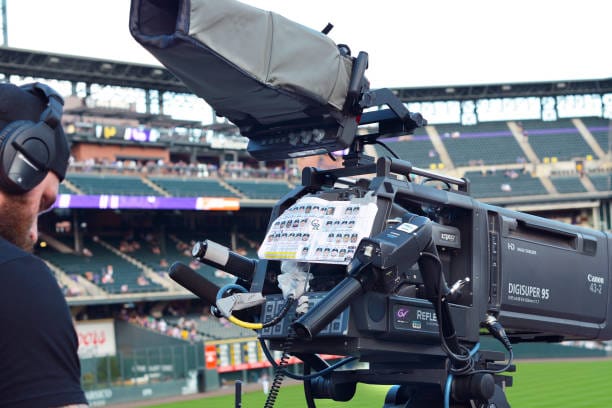MLB’s Streaming Gamble: The Future of Baseball Broadcasting at a Crossroads
Major League Baseball is eyeing a future without traditional TV deals, but can a unified streaming package really replace billions in lost revenue? This deep dive explores the financial risks, potential rewards, and the tough road ahead.

Major League Baseball (MLB) is facing a broadcasting crisis. With the collapse of traditional TV deals and shifting media landscapes, the league is reportedly considering a radical shift—a unified, league-controlled streaming package that would bring every game to every fan without blackouts.
It sounds like a dream scenario, but can this ambitious vision actually work? Or is MLB setting itself up for a financial disaster?
MLB’s Broadcasting Shakeup: What’s Happening?
The 2025 offseason has been a rollercoaster for MLB’s media rights.
- ESPN is ending national coverage after 2025, pulling out of its contract.
- Nearly one-third of MLB teams have had to renegotiate local deals for far less money after their previous agreements collapsed.
- Some teams, like the Padres and Diamondbacks, have already moved to an MLB-controlled local streaming model, hinting at a larger transition.
With uncertainty growing, many are asking: Should MLB take full control of its TV future?
The Dream: A Single Streaming Service With No Blackouts
On paper, the idea is revolutionary:
- One subscription gets fans every game—no more juggling multiple services.
- No blackouts—watch your favorite team anywhere, anytime.
- Available on all devices—smart TVs, tablets, phones, and more.
It’s a baseball fan’s paradise. But as great as it sounds, the financial realities make this a massive gamble.
The $5.34 Billion Problem
MLB made $12.1 billion in revenue in 2024, with nearly half of that ($5.34 billion) coming from national and local TV deals.
If MLB moves to an all-streaming model, it has to replace that $5.34 billion in revenue—a monumental challenge.
Does the Math Add Up?
Let’s break it down.
- Suppose MLB charges $267 per season—similar to other sports streaming services.
- MLB would need 20 million subscribers to hit its revenue target.
- For context, NFL Sunday Ticket—the league’s premium out-of-market package—only has between 4-8 million subscribers.
If the NFL, the most-watched sport in the U.S., can’t reach 20 million, how can MLB?
Would enough baseball fans be willing to pay? The numbers don’t look promising.

The Hidden Costs of Running a Streaming Empire
Beyond just subscriber revenue, MLB would also have to cover huge production and infrastructure costs:
- Building out a streaming platform to handle millions of viewers.
- Producing every game—announcers, camera crews, and broadcast technology.
- Marketing the service to attract new subscribers.
While MLB could sell exclusive sponsorships and ads, would that be enough to offset lost TV deals?
Will Every Team Agree to This?
Another major hurdle: convincing all 30 teams to sign on.
- Some teams, like the Padres and Rockies, have already moved to MLB-run streaming.
- Others, like the Blue Jays and Mariners, fully own their TV networks and may not want to give up control.
If teams refuse to opt in, MLB’s dream of a unified streaming service could fall apart before it even starts.
The Big Questions for Fans
Even if MLB pulls this off, there are huge concerns:
- Will any games remain free? Will casual fans be priced out?
- Will playoff games be locked behind paywalls? Could this hurt the sport’s visibility?
- Will younger fans even subscribe? With declining youth interest in baseball, putting games behind a paywall might push them away.
Most major sports leagues ensure some games are easily accessible to keep fans engaged. If MLB locks everything behind a subscription, could that backfire?

A Bold Move or a Costly Mistake?
MLB’s broadcasting transformation might be inevitable, given the collapse of traditional TV. But if the transition isn’t handled properly, it could cost the league billions and alienate fans.
The next few years will be critical—especially in 2028, when many deals expire.
Will MLB redefine sports streaming, or is this move a financial disaster waiting to happen?
What Do You Think?
Would you pay for a full-season MLB streaming package? Or do you think MLB should stick to traditional broadcasts?
Let us know in the comments below!